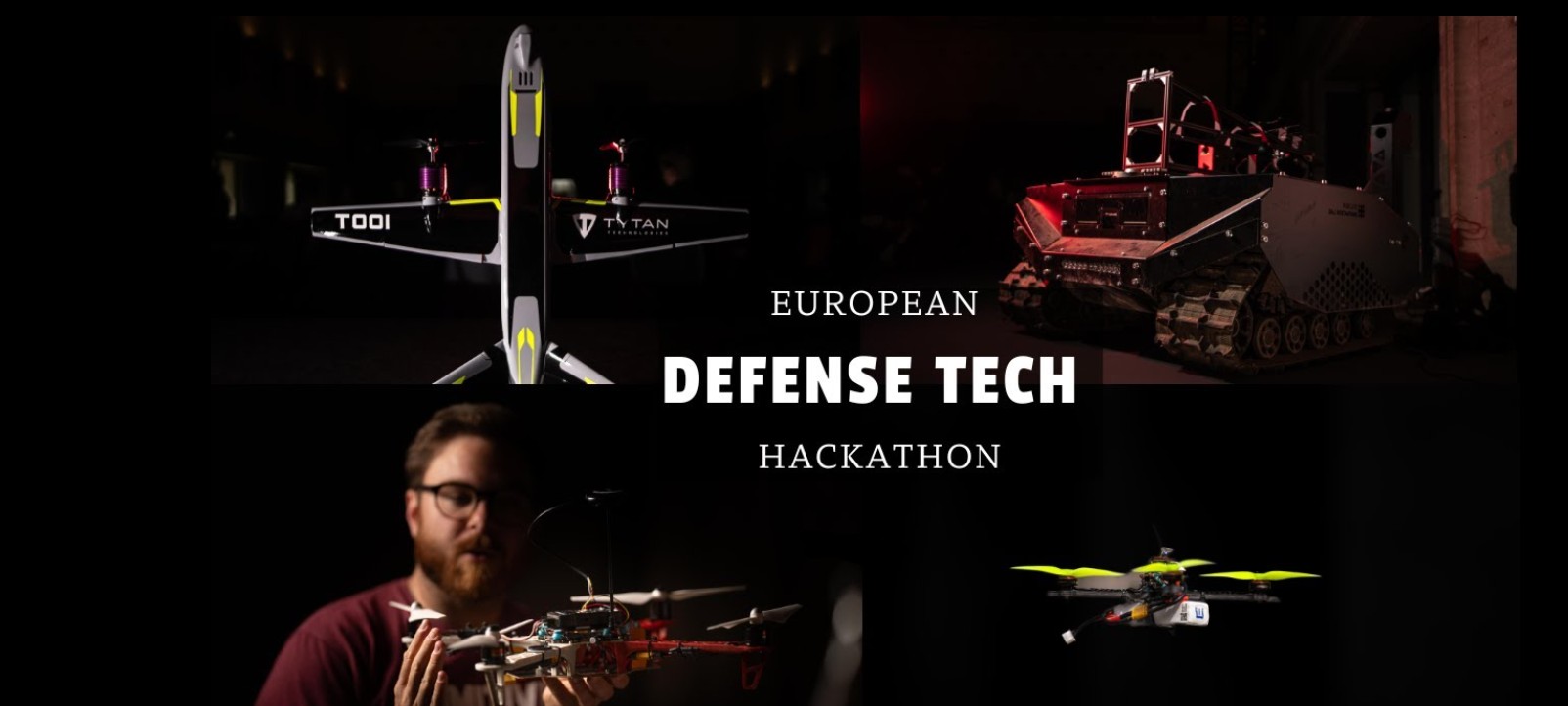European Defense Tech Hackathon – Driving Drone Innovation for Europe’s Future

In an era where unmanned aerial systems (UAS), drone swarms, counter-drone defence, and autonomous aerial platforms are transforming modern security, the European Defense Tech Hackathon (EDTH) stands out as a catalyst for innovation. This pan-European event brings together technologists, defence professionals, drone engineers, startups, and investors to collaborate, prototype, and build next-generation drone solutions.
From its first edition in Munich to events across Paris, Copenhagen, and Prague, the Hackathon has rapidly grown into a central arena for developing dual-use technologies — especially unmanned systems, drones, counter-UAS, and related sensor and autonomy technologies.
Why Drone Technologies Matter at EDTH
Drones have become a focal point of EDTH because they represent a transformative force in both civilian and defence sectors. They are cost-effective, adaptable, and able to deliver real-time intelligence or logistics support where traditional systems fall short. The rise of small FPV drones, kamikaze variants, GPS-denied navigation, and drone swarms has made UAV innovation an urgent priority for Europe’s security ecosystem.
The hackathon format allows participants to tackle complex drone-related challenges — from designing counter-UAV systems to developing autonomous swarms that can operate even when GPS and communication systems are compromised.
Drone-Related Challenges and Use-Cases
At recent editions of EDTH, teams have addressed themes such as:
- Counter-UAV detection: Developing automatic event-based detection and tracking systems capable of identifying small drones even in difficult lighting or environmental conditions.
- GPS-denied navigation: Creating vision-based or inertial navigation systems that keep drones operational despite jamming or signal loss.
- Swarm coordination: Designing algorithms for cooperative missions involving multiple drones working in unison.
- ISR (Intelligence, Surveillance, and Reconnaissance): Integrating advanced payloads and sensors, including thermal, LiDAR, and RF modules, into lightweight UAV platforms.
- Hybrid and ground-air systems: Combining drone-in-a-box and unmanned ground systems for complex, multi-domain operations.
These projects highlight how EDTH has evolved into a breeding ground for practical, defence-ready drone technologies — systems that can shift seamlessly from civilian inspection roles to tactical applications.
What Makes EDTH Effective for Drone Innovation
1. Real-World Problem Sourcing
Challenges are defined by military experts, field operators, and defence professionals, ensuring participants work on authentic, operationally relevant problems.
2. Rapid Prototyping Environment
The hackathon’s intense 48-hour structure drives fast iteration, from concept to functional prototype, encouraging real engineering progress instead of mere ideation.
3. Ecosystem Bridging
EDTH unites technologists, startups, investors, and end-users from the defence world. This cross-disciplinary mix ensures that drone innovations don’t remain theoretical but move toward practical deployment.
4. Post-Event Continuity
Winning teams often continue developing their prototypes after the event, forming startups or integrating their solutions into existing defence projects. EDTH has become a launchpad for the European drone-tech ecosystem.
Core Drone Technology Focus Areas
Across all editions, several consistent themes define EDTH’s drone agenda:
- Counter-drone detection and interception systems
- Autonomous navigation in GPS-denied or hostile environments
- Drone swarm intelligence and coordination
- Sensor integration for advanced ISR capabilities
- Dual-use drones for defence and civilian applications
- Logistic and ground support automation
These areas reflect Europe’s growing commitment to technological sovereignty and readiness in the face of evolving drone-related threats.
Why It Matters for Europe
Europe has long been seen as trailing behind other regions in agile defence innovation. The European Defense Tech Hackathon changes that narrative by cultivating a new generation of engineers and entrepreneurs focused on unmanned systems and autonomy. It builds a community where hardware engineers, software developers, and defence specialists collaborate on equal terms — and where the line between civilian and defence innovation becomes fluid.
By fostering a culture of rapid experimentation, the event strengthens Europe’s capacity to design, test, and deploy high-impact drone technologies faster than traditional defence procurement cycles would allow.
An Invitation to Innovators
For drone engineers, autonomy specialists, and founders, the next editions of the European Defense Tech Hackathon offer a unique opportunity to work alongside Europe’s leading defence innovators. Whether building counter-UAV tools, swarm algorithms, or autonomous sensors, participants have the chance to contribute directly to Europe’s technological resilience — and help define the drones of the future.

.jpg)



